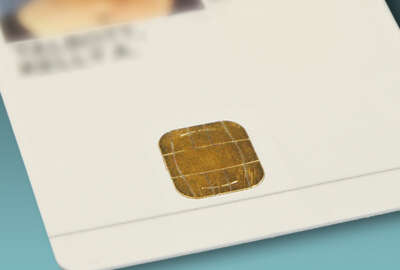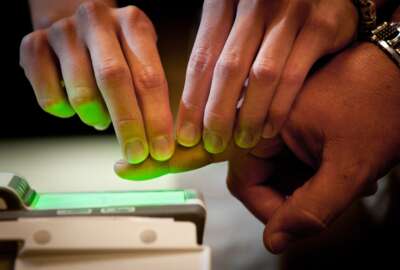USPS, GSA expand PIV card services to post offices outside DC area this summer
Federal employees and contractors will soon be able to obtain or update their Personal Identity Verification (PIV) cards at post offices outside the D.C. metro...
Federal employees and contractors will soon be able to obtain or update their Personal Identity Verification (PIV) cards at post offices outside the D.C. metro area.
The General Services Administration and the Postal Service, by the end of the year, will expand the number of USAccess credentialing sites at post offices to 22.
The first wave of post offices to offer this service outside the D.C. area will happen this summer.
GSA, in a press release Thursday, said expanding the program will empower the federal workforce by giving them more options to receive or update their security credentials.
Post offices selected as USAccess credentialing sites not only provide easier access for federal employees during the workweek, but some even offer these services over the weekend.
“This offers new opportunities for USAccess to expand to needed areas and address the shifting federal workforce, making shared services more accessible,” Laura Stanton, the assistant commissioner for the Office of Information Technology Category at GSA’s Federal Acquisition Service, said in a statement.
This summer, GSA and USPS will open new USAccess credentialing sites at post offices in the following cities:
- Sacramento, CA
- New York, NY
- Houston, TX
- Lakeland, FL
- San Marcos, TX
- Fredericksburg, VA
GSA and USPS made these services permanently available at seven D.C.-area post offices last year, after a pilot in the early stages of the COVID-19 pandemic exceeded expectations.
The seven post office sites completed more than 11,000 appointments during the pilot phase, which ran from November 2020 to May 2021. Customers who participated in the pilot gave the service a 91% favorability rating.
In the first 90 days of the pilot, USPS and GSA processed about 4,500 credentials from employees at 120 agencies.
Agencies shut down nearly 500 credentialing offices in the early stages of the pandemic, making it harder for federal employees and contractors to update their PIV cards.
USPS director of Digital Business Services Jeff Tackes said the expanded partnership with GSA “is an excellent, real-world example of delivering services closer to where they are needed.”
“By partnering with all levels of government to engage and provide services for citizens, the U.S. Postal Service increases government visibility and increases revenue,” Tackes said in a statement.
Tackes, in an interview last year, said the identity credentialing program has room for exponential growth. He said about 17,000 post offices have the kind of retail terminals that could eventually provide identity-proofing services.
Darlene Gore, the director for identity credential and access management at the Office of the IT Category at GSA’s Federal Acquisition Service, previously said the Office of Management and Budget brought the two organizations together soon after the pandemic started.
The program builds off the Postal Service’s emerging role as a storefront for other government services, which has room to grow under a USPS reform bill recently passed by Congress.
The Postal Service Reform Act allows USPS to branch out into offering non-postal services on behalf of state, local or tribal governments.
The American Postal Workers Union said this provision in the bill would allow USPS to help issue state hunting or fishing licenses or even offer some services on behalf of state departments of motor vehicles.
USPS also accepts first-time passport applications from customers on behalf of the State Department, and in recent years has expanded its fingerprint and biometric capture services to thousands of post offices across the country.
The USPS works with the FBI to provide “rap sheets” to customers applying for visas, adopting a child or applying for jobs working with children. USPS also uses its biometrics capabilities to vet the 120,000 employees it hires annually.
USPS executives also see the agency’s emerging role as a storefront for government services as an opportunity to bring in new lines of revenue, and factors into its 10-year reform plan.
The Postal Service also launched a pilot last September meant to expand its banking services.
However, USPS told the Postal Regulatory Commission in January that only six customers have taken advantage of the check-cashing pilot it launched at four post offices. USPS said those transactions generated $35.70 in revenue.
For a flat fee of $5.95, customers at one of the post offices participating in the pilot can purchase a single-use gift card of up to $500, using business or payroll checks as payment. USPS won’t accept checks larger than $500, and won’t disburse cash for any checks.
The agency already offers some basic financial services, including money orders, electronic funds transfers and cashing checks issued by the Treasury Department, but would need Congress to pass additional legislation to take on more robust services at its more than 34,000 retail locations.
Copyright © 2025 Federal News Network. All rights reserved. This website is not intended for users located within the European Economic Area.
Jory Heckman is a reporter at Federal News Network covering U.S. Postal Service, IRS, big data and technology issues.
Follow @jheckmanWFED






